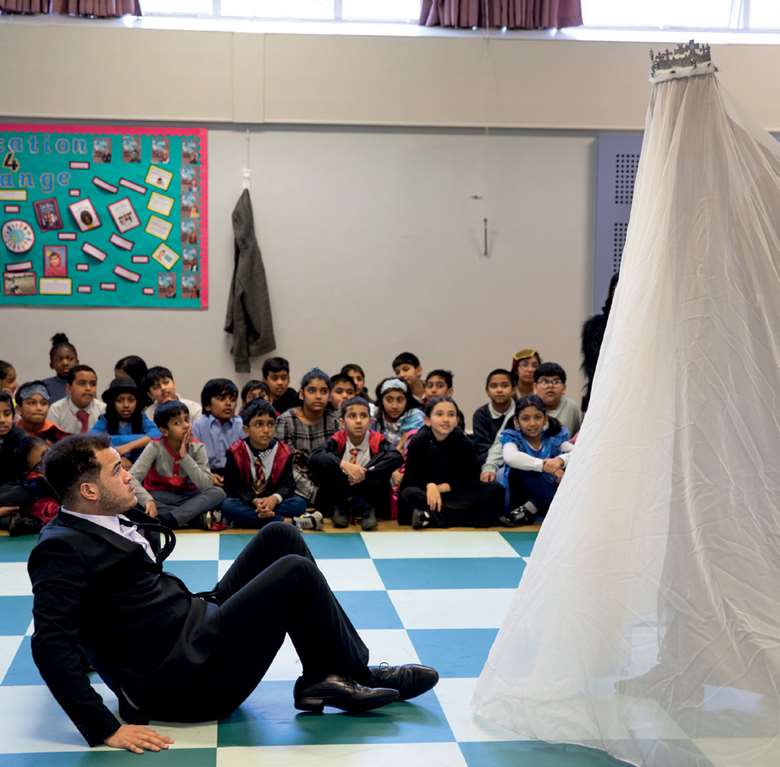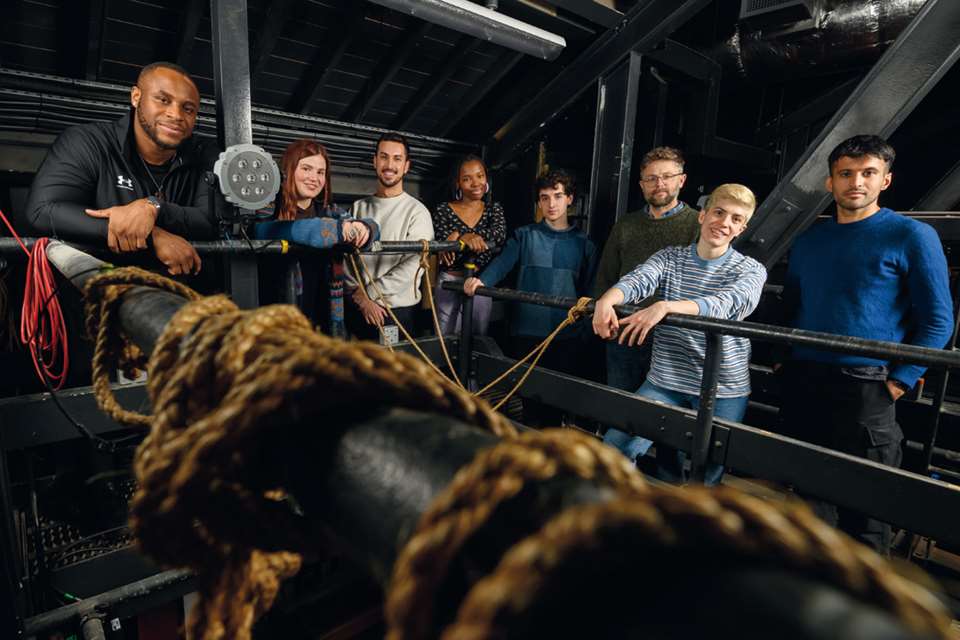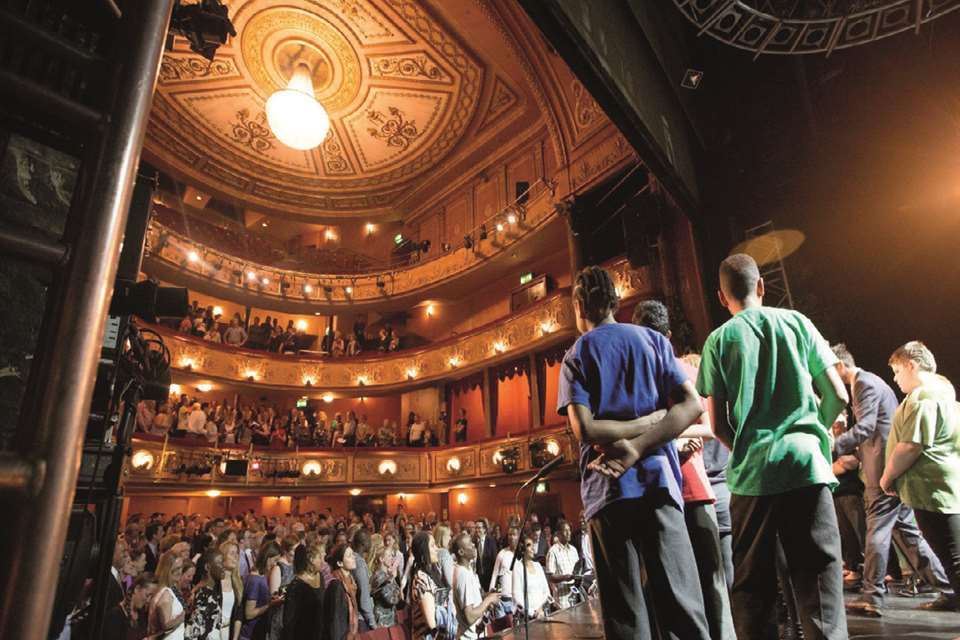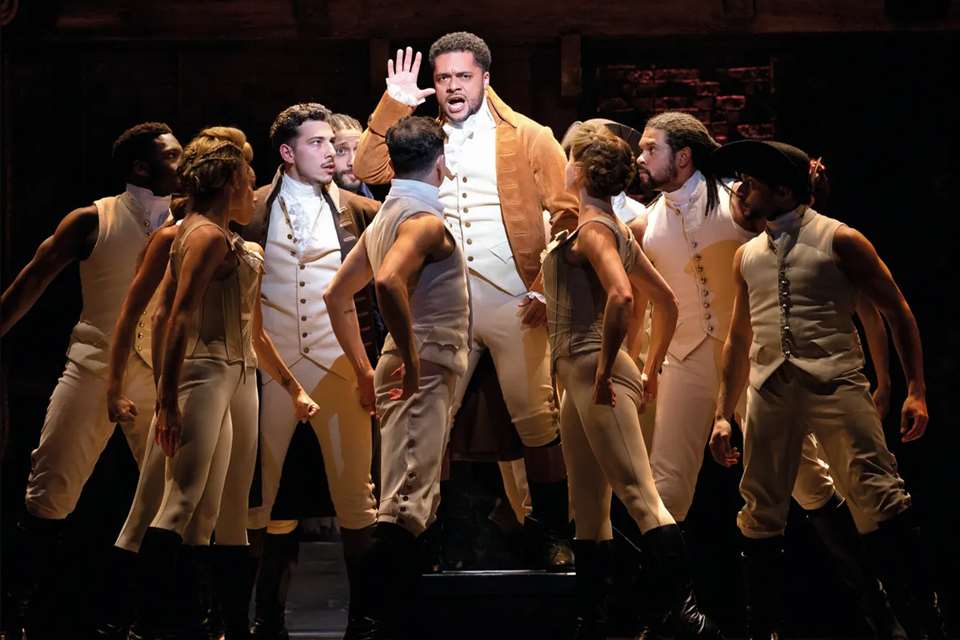Bardwatching: Summer Term 1 2023/4
Hattie Fisk
Friday, March 1, 2024
When it comes to the Bard, she's an inveterate twitcher. Hattie Fisk shares what she's spotted through her beady bardy binoculars

Marc Brenner
True hope is swift and flies with swallow's wings
The Royal Shakespeare Company (RSC) is calling on policymakers to invest in a centralised research hub for arts and cultural learning in the UK. This call to action follows a 12-month research project called Time to Act, which found that primary school pupils exposed to the work of Shakespeare had an increase in confidence and a richer vocabulary.
Fourty five state primary schools took part in the project, and the teachers involved were guided by five days of professional development from the RSC. The schools were randomly assigned to either interact with Shakespeare in their teaching or to act as a control group. It was found that the school children who received 20 hours of Shakespeare-based teaching (compared to the control group) had:
- Increased confidence – they were 13.8% more self-assured in language skills than their peers; 12.6% more comfortable in taking a considered approach to tackling their work objectives; and 11.3% more confident in their own ability as a good learner.
- More detailed and more complex use of language – a 24.3% higher usage of rarer verbs and 20% longer phrasing and more clauses within sentences.
- They used more expansive descriptions of setting, place and atmosphere, demonstrating a broader sense of imagination.
The findings were assessed by 3000 written responses from children in those schools. Jacqui O'Hanlon, RSC director of creative learning, said: ‘The results provide data that supports what we have known for many years – that arts education plays a significant role in improving the life-chances of young people. Expressive arts subjects and experiences significantly contribute to children's development.
This report has led to the RSC refreshing their aims, with the organisation listing the following targets:
- That the arts and culture sector work together to develop measures on ‘the impact of arts interventions’ for young people's social, emotional and academic development.
- Investment in a centralised research hub for arts and cultural learning in the UK.
- For policymakers locally and nationally to recognise the ‘impact and importance of an arts-rich education’.
Now is the winter of our discontent
Following public uproar surrounding Shakespeare's Globe's casting for its production of Richard III, Equity has released a statement claiming that the Globe has failed to meet ‘open, transparent and accessible’ standards of casting. The union went on to say the London-based theatre had falled short on ‘issues of under-eployment for disabled artists’ after the artistic director Michelle Terry was cast as titular role.
When the news that Terry had been cast was released, a number of disability-focused organisations such as Graeae Theatre and Vital Xposure called for the play to be recast, as Terry said that she would not play the character with a visible or physical impairment.
In a public statement Equity criticised the move, stating: ‘Adjusting the portrayal of Richard III does not address issues of under-employment for disabled artists nor of the portrayal of the character.’
Terry acknowledged ‘that for many, Richard III is an iconic disabled figure’ and admitted her casting might feel like a ‘missed opportunity for a disabled artist to play a disabled character on a major UK stage,’ but she said that the role ‘will come around again’.
A newly formed body called the Disabled Artists Alliance published an open letter in response to this calling for an immediate recast. This has been signed by over 150 theatre professionals.






